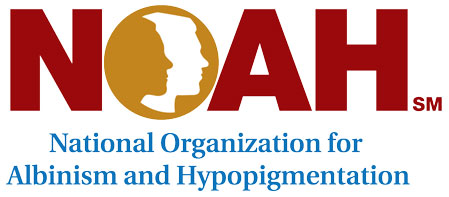For many people the term “albino” brings to mind images of a person or animal with a pale complexion and pink eyes. The term “albinism,” by contrast, is less commonplace or recognizable to people who may not know a person with the condition. We all know that words can be powerful, so how do you say that someone is an albino without being disrespectful?
Words Can Hurt or HealIn the albinism community, opinions vary on the use of the word albino. While some find it extraordinarily offensive, others feel the label carries neutral or even empowering connotations. Many people with albinism agree that their feelings depend on the context or intent in which the word is used. The term can be derogatory when said mockingly or with malice, or it can be used innocently by someone who means no offense or is just curious. Some people with albinism grew up in families or communities that used the word albino often and learned at an early age that there was no shame or negativity in referring to themselves as such. Others may have found that they were only called albino when they were being teased. Some describe their negative association with the word as being as offensive as a racial slur. Some children and adults with albinism may use the term albino proudly and may feel empowered by “taking back” a once offensive word. By showing the world that they are comfortable calling themselves a word they once found hurtful or derogatory, the word “albino” loses all the power and shock value that it once claimed. By taking personal ownership of one’s condition, many people with albinism find that words like albino can no longer hurt them. Of course this is a very personal decision, and not all people with albinism feel comfortable using or hearing the term. Put the Person FirstAlthough there are many people with albinism who are at peace with the term albino, when dealing with any condition, it is best to put the person first. For instance, say, “a person with albinism” rather than “an albino” or “an albino person.” The rationale for this person-centered language is to do just that: put the person ahead of the condition. When a person is referred to as an albino, he or she is essentially being reduced to and defined by nothing more than their condition. It’s as though the world looks at that person and sees only the condition of albinism. In this way, it can feel like a dehumanizing label. To most in the albinism community, the term “person with albinism” will always be a kinder, gentler, less shocking term. Regardless of the context, the word albino can sometimes be an ugly, jolting word to many, especially when heard unexpectedly. If you’re ever unsure, just ask. Every person with albinism will have personal experiences and opinions about the label. As one NOAH member said, “I may be an albino, but above all else, I am a person. I just happen to have the condition of albinism.” This information may be shared as long as no changes are made, the copyright notice is kept intact and the author and / or the photographer are given credit. |
Where people with albinism and their families can find acceptance, support and fellowship.
